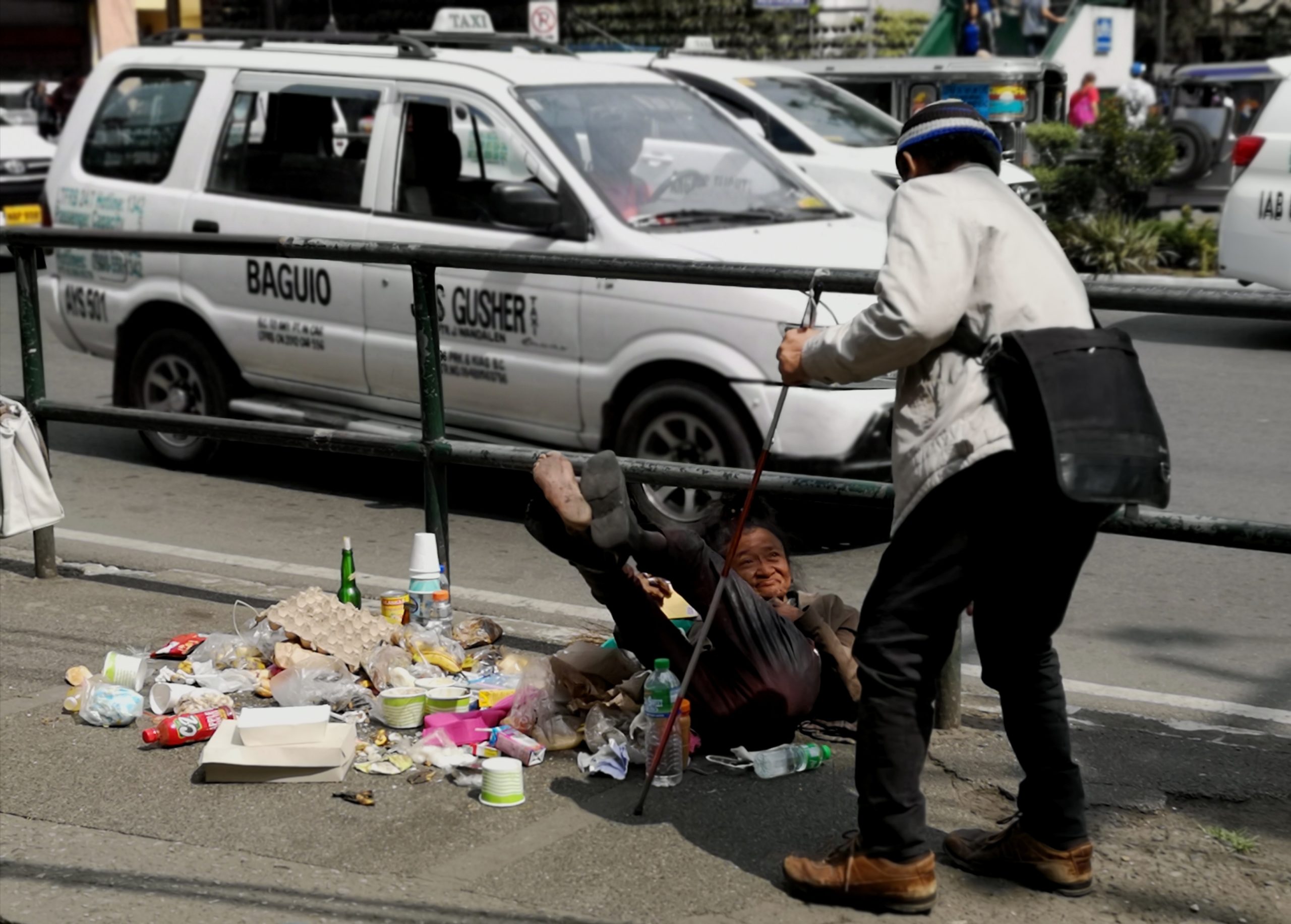
FORGOTTEN A number of mentally ill and homeless people owned the streets of Baguio when the city was locked down a fewmonths ago. But they may nowneed to be tested, too, because of their likely exposure to the coronavirus. —EV ESPIRITU
BAGUIO CITY—Social workers have their hands full helping 15,000 poor families cope with the economic fallout from the coronavirus pandemic in the city.
But they may also need to deal with mentally ill and homeless people who are exposed to the elements and may be carriers of the virus themselves, according to city social welfare officer Betty Fangasan.
The social welfare office had recorded cases of 10 men and women who sleep along alleys and village roads, some of whom could not be confined at the city’s mental health institution for lack of space, Fangasan said.Others have relatives in the city and neighboring Benguet towns who are ill-equipped to take care of them, she said.
According to Fangasan, these people are “alienated and often uncooperative and may require a lot of coaxing” before they submit to tests.“Social workers have been able to communicate with some of them. Almost everyone is docile, although a few can be triggered and would refuse contact with us until they again feel safe,” she said.
Their permission or the consent of their guardians would also be needed before their swab test samples can be retrieved, said Dr. Donabel Tubera-Panes, head of the city’s infectious disease unit.
As of Wednesday, hospitals here had been treating 121 patients who contracted the coronavirus after a spike in cases last month. Baguio has recorded 483 cases, with 11 deaths, since March.
Fangasan said the city might ask civic groups and psychiatrists providing therapy for residents to offer suggestions as to how best to deal with street dwellers. —Vincent Cabreza